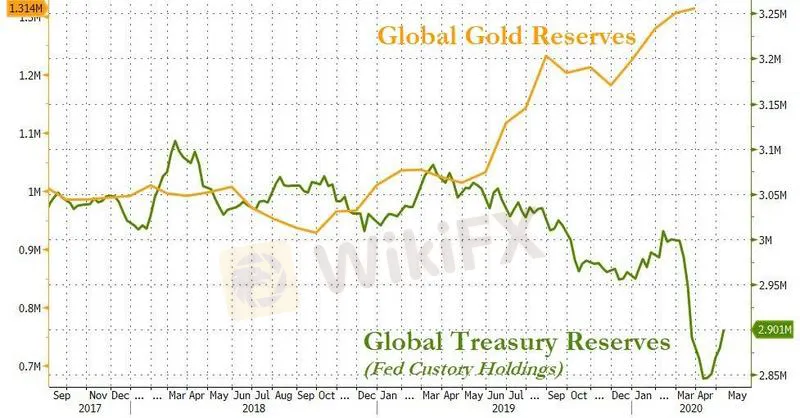Overseas Investors Are Selling off US Bonds from wisepowder's blog
According to the latest US Treasury International Capital report,
overseas investors sold off a US$299.3 billion of US Treasury bonds
during the bond market's rally in March, breaking the record of monthly
sell-off.To get more news about WikiFX, you can visit wikifx official website.
The sell-off wave in US Treasury bonds shows that overseas banks and companies are selling dollar-denominate assets to obtain US dollars.

The 10-year US Treasury yield fell to a historical low of about 0.32% in March, and closed at 0.64% last Friday. In March, China dropped U.S. Treasury holdings by US$10.7 billion from that of February to US$1.0816 trillion, the first time in the year to reduce US T-bond holdings. China has been the world's second largest holder of US bonds since last June.
Up to the same month, Japan was still the top overseas holder of US bonds. Its holdings increased by US$3.4 billion from February to US$ 1.2717 trillion, growing for the third consecutive month and ranking the world's first since June last year.
Thomas Simons, senior money market economist at Jefferies LLC, said that with the global market crash in March, global companies are accessing revolving line of credits from the bank, leading to the surge of dollar demands.
The sell-off wave in US Treasury bonds shows that overseas banks and companies are selling dollar-denominate assets to obtain US dollars.

The 10-year US Treasury yield fell to a historical low of about 0.32% in March, and closed at 0.64% last Friday. In March, China dropped U.S. Treasury holdings by US$10.7 billion from that of February to US$1.0816 trillion, the first time in the year to reduce US T-bond holdings. China has been the world's second largest holder of US bonds since last June.
Up to the same month, Japan was still the top overseas holder of US bonds. Its holdings increased by US$3.4 billion from February to US$ 1.2717 trillion, growing for the third consecutive month and ranking the world's first since June last year.
Thomas Simons, senior money market economist at Jefferies LLC, said that with the global market crash in March, global companies are accessing revolving line of credits from the bank, leading to the surge of dollar demands.
The Wall